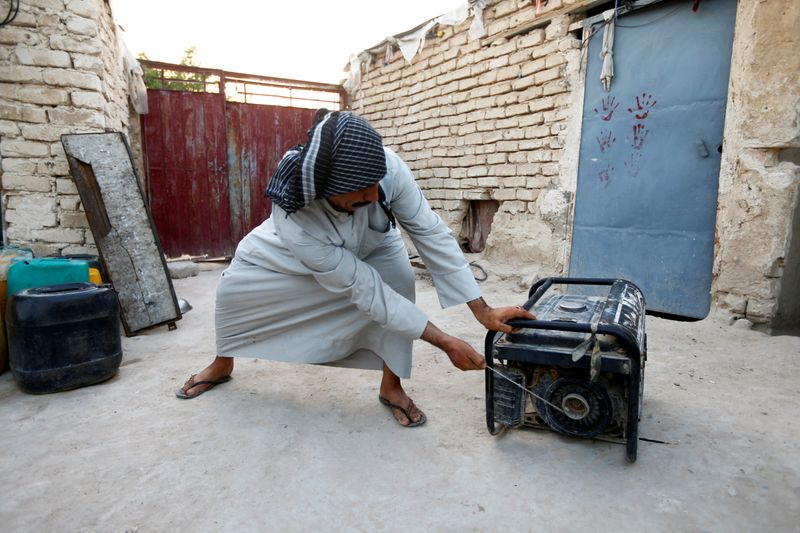By Humeyra Pamuk
WASHINGTON (Reuters) - The United States said on Thursday it had renewed a waiver for Iraq to import Iranian electricity, this time for 60 days to enable Baghdad to take "meaningful actions" to reduce its energy dependence on neighbouring Tehran.
The waiver will continue to exempt Iraq from U.S. sanctions reimposed on Iran, hobbling its oil-dependent economy, after President Donald Trump withdrew Washington from world powers' 2015 nuclear deal with the Islamic Republic.
Washington has repeatedly extended the waiver for Baghdad to use crucial Iranian energy supplies for its struggling power grid, usually for periods of 90 or 120 days.
Renewals for shorter periods, analysts said, could be one reflection of relations between the two countries that have been strained over repeated militant attacks on U.S. forces stationed in Iraq that Washington has blamed on Iran, which denies this.
"The waiver ensures that Iraq is able to meet its short-term energy needs while it takes steps to reduce its dependence on Iranian energy imports," a U.S. State Department official said.
"We believe it is possible within the 60 days for the government of Iraq to take meaningful actions to promote energy self-sufficiency...," he said.
The United States has insisted that oil-rich Iraq, OPEC's second-largest producer, move towards self-sufficiency as a condition for its exemption for importing Iranian energy. Iraq relies heavily on Iranian gas to feed several power stations.
The Trump administration has said it is disappointed that Iraqi forces have failed to protect U.S. forces stationed in Iraq. They have come under multiple rocket attacks this year alone, over which Washington has pointed the finger at Iranian-backed militia that also support Iraq's Shi'ite-led government.

U.S.-Iranian relations have been bitter since the Islamic Revolution toppled the U.S.-backed Shah of Iran in 1979 and launched theocratic rule. Tensions worsened after Trump exited the nuclear deal approved by his predecessor Barack Obama.
